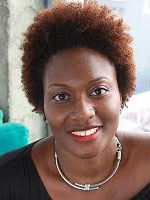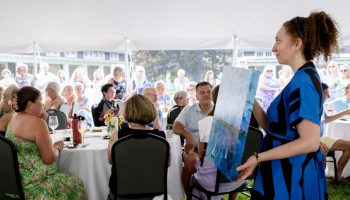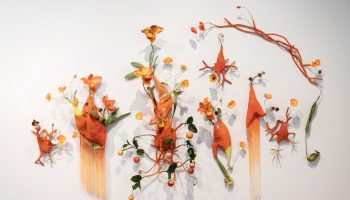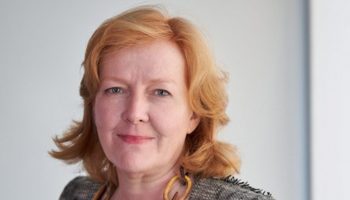Shervone Neckles was born with Grenada in her soul.
“I’m always trying to figure out, why do I have this longing for Grenada?” said Neckles, an interdisciplinary artist, educator and community worker. “Why is it that I carry that longing for this homeland and this landscape and the essence of this place, like I (grew up) there?”

Her parents emigrated from the small Caribbean country and settled in Brooklyn, New York, shortly before her birth. Although she visited often growing up, spending summers with her grandmother and cousins, Neckles’ relationship with Grenada always felt profound in a way she couldn’t personally claim.
“My parents really internalized Grenada once they decided they were going to leave home … and I realized that they basically passed on that inscape, that longing to me,” she said. “I really think that’s part of being a first-generation child. You tend to carry some of your parents’ longings; you carry their torches.”
From her art to her nonprofit work, Neckles explores the importance of ancestry, history and community.
She will be speaking this week as part of the Chautauqua Visual Arts Visiting Artists Lecture Series. Her lecture will air at 6:30 p.m. EDT Tuesday, Aug. 4, on the CHQ Assembly Virtual Porch.
Neckles has always been surrounded by creativity, but had no framework for what it looked like to be a full-time artist.
“I come from a long lineage of creative folks, but all of those folks went on to have careers that we’re familiar with,” she said. “(They) got careers as engineers and nurses and educators and beauticians. (Someone) having art as their sole career was not something that I ever saw.”
This instilled in her the need to have “a Plan B and a Plan C.” Neckles wanted to always be able to support herself, and even fund her own projects if needed. As a child she saw herself in the Black women who taught at her elementary school, and began to consider education as a viable career to support her art.
“After about sixth grade I started going to different types of schools in different neighborhoods outside of my own, and that was the moment where I stopped seeing representations of myself as educators,” she said. “In art particularly, because of the route I decided to take with my education, I was seeing representations of myself less and less.”
She began to realize that working in arts education could not only fund her work but could also be a way to give back to her community.
“It really went full circle,” Neckles said, “from me trying to figure out what I could do to survive to then picking up a career that felt really natural to me and then doing (what) I wish I had more of when I was a child; which was having more teachers of color, and (to have them) teaching subject areas I was passionate about.”
She worked for several years as a high school multimedia arts teacher in Brooklyn, then later as a consultant for the New York City Department of Education and adjunct professor at the Pratt Institute. In 2012 she pivoted to arts administration, and currently works as an artist programs manager for the Joan Mitchell Foundation, an artist-endowed nonprofit.
“I think the kind of energy I’m putting out, and the fact that I’m really living my values generates this interest where folks who align with that, or projects that align with those things, come to me,” Neckles said.
She sees her art as a form of ethnographic research, focused specifically on her family history and Afro-Grenadian, Caribbean culture.
“(I’m) telling the stories of me trying to trace and track my ancestral history and memory, and trying to make sense of it for myself,” Neckles said. “I’m telling all of these origin stories and they have layered meanings. It doesn’t matter to me whether folks understand all the messages I’m trying to tell in my story, (but) I do think that people can walk away understanding that I’m telling some kind of creation myth, some kind of origin myth, some kind of folkloric story that’s drawing from ancestors.”
She works primarily in collage, alternative printmaking, book arts and sculpture. By compiling pictures from her family archives, and creating images and her own photographs, she documents the history, legacy and current state of the Caribbean, her family and herself.
“A lot of our depositories, our historical and cultural institutions, have many gaps,” Neckles said. “There are stories that are missing, so rather than rely on waiting for someone to do that for me, or for my family, or for the Caribbean, why not start creating those repositories and those artifacts in my artwork for myself … because who could tell the story like I could?”




